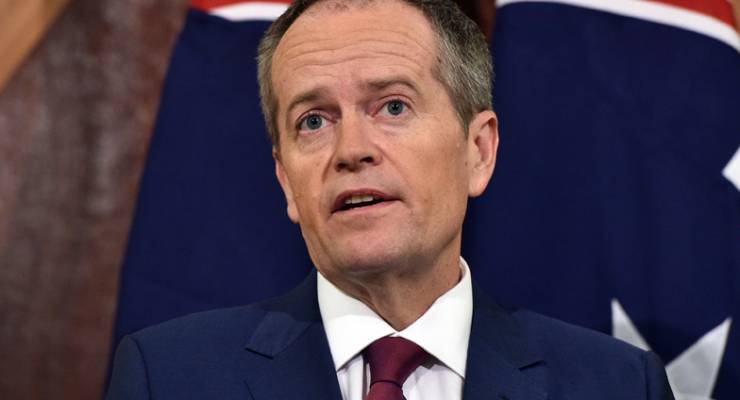
Labor retains a narrow lead in today’s Essential Report poll, continuing the stalemate that has brought no movement in voting intention despite two weeks of official campaigning.
Both the Coalition and Labor are down a point on their primary votes, to 41% and 37% respectively, while the Greens remain on 9%, others/independents on 9% and Nick Xenophon Team on 3%. That yields an unchanged two-party preferred result of 51%-49% in Labor’s favour.
That’s a 4.5% swing to Labor since 2013 and, on a uniform national basis, would deliver Labor the narrowest of winning margins.
There’s also been little change on another trend of recent polling — the decline in voters’ estimation of Malcolm Turnbull. He’s lower on a range of positive attributes and higher on negative attributes for voters compared to three weeks ago. For example, he’s up seven points to 63% on “out of touch with ordinary people”, up five points on “arrogant” and down five points on “understands the problems facing Australia”. Bill Shorten, however, is essentially unchanged across nearly all indicators. That means Turnbull still leads on most positive indicators and trails on negative ones.
The Liberal Party has a strong lead over Labor on trust to handle a number of key issues. On security and the war on terrorism, 42% of voters rate the Liberals as the party they trust most to handle the issue, compared to 19% for Labor. The Liberals lead Labor by 20% — 42%-22% — on handling the economy. The Liberals also have a strong lead on “controlling interest rates” (12 points), “political leadership” (11 points) and “treatment of asylum seekers (eight points). But Labor leads on “ensuring a fair taxation system” (eight points), housing affordability (10 points), “ensuring a quality education for all children” (11 points), “ensuring the quality of Australia’s health system” (11 points) and “protecting Australian jobs and protection of local industries” (13 points).
Malcolm Turnbull has a lead over Bill Shorten on who voters would trust to regulate the banking and finance sector — the Prime Minister is more trusted by 33% of voters, compared to 27% who trust Shorten — given Turnbull’s background and the traditional Coalition strength on the economy, that suggests Labor’s call for a royal commission into the banks has gained significant traction. Shorten has the tiniest of leads, 31% to 30%, on supporting manufacturing, but in other areas has a more substantial lead: he leads by six points on “ensuring big companies pay their share of tax”, eight points on “funding hospitals”, nine points on housing affordability for first-time buyers, 14 points on looking after the needs of pensioners and 16 points on funding public schools.
On asylum seekers, however, there is general scepticism about Labor’s commitment to boat turnbacks and offshore detention: just 28% of voters think Labor would keep the Coalition’s policy, compared to 38% who say Labor would change the policy if elected. Even 26% of Labor voters believe Labor would abandon parts or all of the Coalition’s asylum seeker policy; 54% of Liberal voters think the same, as do 29% of Greens voters. All of which suggests the government’s tactic of insisting Labor would walk away from its tough line on boat arrivals is gaining some traction in the electorate, including among those still saying they’d vote Labor.










“The Liberals also have a strong lead on “controlling interest rates” (12 points)” – WTF! The pollies don’t control interest rates, not even indirectly these days. what a stoopid question to ask.
“Malcolm Turnbull has a lead over Bill Shorten on who voters would trust to regulate the banking and finance sector.” And again, I ask, WTF?
I think we have a nation of drongos, DB, going on these poll figures.
Talcum can’t even control his own party, let alone the country and its economy!
As I’ve said before, Essential needs to get another set of respondents…if this is the best they can do, then the mind boggles!!!!!
The liberals have managed to create a brand image as far as asylum seeker issue and economy and interest rates. Labour has never been able to effectively tackle it. The GFC did not help their cause either. Also labour never had a focussed strategy to counter their negative image.